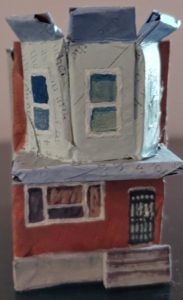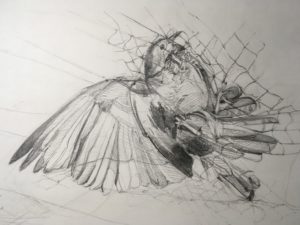Readings: Psalm 72:1-7, 18-19; Isaiah 30:19-26; Acts 13:16-25
When I recently opened my Bible to reflect on these readings, I noticed that, in the past, I had made several annotations. I had personalized some phrases because they spoke directly to me. I will share these notes, paraphrases, and my current understanding of them. Where I use my name, I invite you to insert your own.
‘Listen’, Ann. Here I am reminded that I need to listen to God in prayer but also listen to others who may have an important word for me, just as the people of Antioch listened to Paul and Mary listened to the angel. (Acts 13:16)
‘I will be gracious to you, Ann, when you cry out. As soon as I hear you, I will answer you. I will give you the bread that you need, Ann, and the water for which you thirst.’ (Isaiah 30:19-20). God expects a dialogue with me, a relationship. As well as listening, I must speak my needs and desires. I must trust that God will give me what I need perhaps not what I want. I know I am free to debate with God if I need to! Again, Mary is one model for this.
‘I have found Ann, a woman after my own heart; she will carry out my every wish.’ (Acts 13:22).
Wow. This idea is humbling and can sometimes feel like a burden. These words seem less burdensome when paired with the words of (Isaiah 31:21) – ‘A voice shall sound behind you, Ann: This is the way, walk in it.‘ I must move forward with confidence that God will move with me as God has always walked with me in the past, seen or unseen.
Listen, speak, move. The cycle continues.
Come, Lord Jesus. In this Advent season, help me to listen to the words You speak directly to me in scripture and through others; help me speak to You in an ongoing relationship; help me to follow Your lead in my life, to say yes as Mary did. I desire to hear your challenging words. I also desire to hear and believe Your words of gratitude and affection for me.
Offered by Ann Fowler, spiritual director, leader, walking home to Bethlehem.
[Rowhouse, (2018-2019), Colin Fredrickson, artist]




